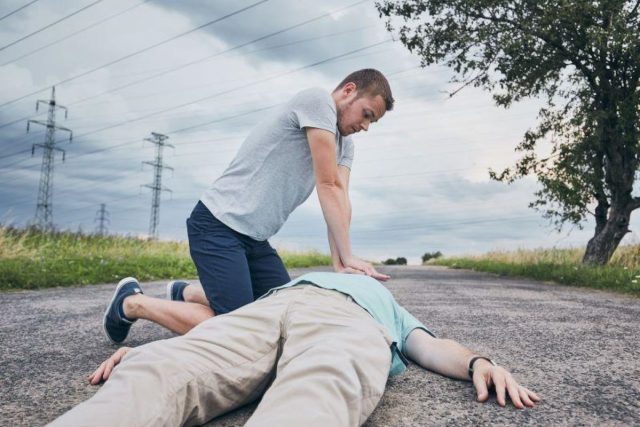Benefits include increased rates of return of spontaneous circulation
By Lori Solomon HealthDay Reporter
THURSDAY, Aug. 29, 2024 (HealthDay News) — Regardless of drug use, administration of naloxone during out-of-hospital cardiac arrest (OHCA) is associated with improved outcomes, such as increased survival to hospital discharge, according to a study published online Aug. 20 in JAMA Network Open.
David G. Dillon, M.D., Ph.D., from the University of California, Davis, and colleagues used data from 8,195 patients with OHCA treated by five emergency medical service agencies in three Northern California counties (2015 to 2023) to determine whether naloxone administration during OHCA is associated with return of spontaneous circulation (ROSC) or survival to hospital discharge.
The researchers found that naloxone was administered to 14.2 percent of patients and was associated with increased ROSC using both nearest-neighbor propensity matching (absolute risk difference [ARD], 15.2 percent) and inverse propensity-weighted regression adjustment (ARD, 11.8 percent). There was also an association between naloxone administration and increased survival to hospital discharge using both nearest-neighbor propensity matching (ARD, 6.2 percent) and inverse propensity-weighted regression adjustment (ARD, 3.9 percent). For ROSC, the number needed to treat with naloxone was nine, and for survival to hospital discharge, it was 26. Naloxone was associated with improved survival to hospital discharge in both those with presumed drug-related OHCA (odds ratio, 2.48) and non-drug-related OHCA groups (odds ratio, 1.35).
“These findings support further evaluation of naloxone as part of cardiac arrest care,” the authors write.
Copyright © 2024 HealthDay. All rights reserved.



















